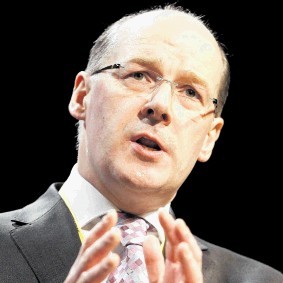
The debate surrounding Scotland’s constitutional future is live and emotive and the outcome will have a fundamental impact on business operating throughout the country. Despite its significance, there was, until recently, very little clarity on the terms of reference and the question or questions to be asked.
Additionally, and almost silently outside of political circles, the Scotland Act became law earlier this year. This gives the Scottish Government the power to raise a new Land and Buildings Transaction Tax (replacing Stamp Duty), Landfill Tax and a portion of Income Tax paid by Scottish residents.
The transfer of these taxes in itself represents a significant shift of tax-raising powers, but it remains that less than half of the Scottish Government’s expenditure is covered through taxes it raises directly.
Against this backdrop, Ernst & Young surveyed almost 200 business leaders north of the Border to gauge their hopes, expectations and concerns in the key area of corporate tax and investment, including a sizable portion from the oil and gas sector, as part of a discussion paper titled ‘Grasping The Thistle’.
o Corporate tax crucial to investment decisions
Taxation is one of the main factors that affect the profit made from an investment. Therefore, the survey asked respondents about their expectations regarding the rate of corporation tax the Scottish Government would set should it gain control.
A little under half (49%) of all those surveyed believed the rate would be reduced. Respondents from the oil and gas sector, in the main, believed the rate would be lowered, although 30% stated they were unsure – the highest level of uncertainty among the sector groups.
The most likely explanation for this result is the recent volatility in oil and gas taxation emanating from the UK Government’s decision to increase the supplementary charge in the 2011 Budget and the impact on investment decisions.
In contrast, 30% of financial services respondents expected a rise in corporate taxes, again a likely reflection of the public and political mood facing the sector.
o Significant and immediate reduction important to oil and gas
Unsurprisingly, the majority of participants were widely supportive of cuts in taxation, suggesting that this would support investment in Scotland by making the country more competitive and, therefore, a more attractive location for business investors.
In terms of the extent of suggested reductions, those individuals representing oil and gas answered somewhat differently from those in other sectors, as they believe they require a much larger drop in order to influence investment decisions.
Oil and gas respondents indicated they would welcome a reduction of 8-11%, whereas the majority of respondents from other sectors suggested lower cuts would suffice.
Those surveyed in oil and gas were also much more inclined to seek an immediate reduction, with 60% highlighting that as their preference compared with those from other sectors who favoured a phased introduction, the difference in opinion no doubt arising from the larger slice of profit paid in upstream oil and gas as tax.
o Affordability of future potential cuts questioned
However, concerns were expressed about the affordability of any cuts. The vast bulk of responses suggested that spending cuts should make up for any shortfall in public finances, reflecting the apparently widely-held view among businesses that the public sector is expensive and, in some strong cases, inefficient.
The survey results provide an interesting guide in so far as they suggest that businesses believe that investment is not dependent upon significantly lowering rates. Rather, they hold the view that more modest cuts would achieve the same objective with the proviso that these rate cuts are credible and sustainable.
Therefore, it can be surmised that the Scottish Government’s task of setting a corporate tax rate, should it ever come to pass, may be easier than expected given any reduction would not be as dramatic as once envisioned.
In saying that, the response from oil and gas companies should also give the Scottish Government a clear steer on what has to be executed in terms of corporate tax rates in order to stimulate investment should the opportunity ever be presented.
o Further layers of red tape “a chore”
Asked whether they currently believed an independent tax regime was economically justifiable, though, those surveyed, including those from the oil & gas sector, responded with a strong “no”.
There is a view among businesses that there is too much red tape holding them back, so the thought of adding another layer of complexity by raising taxes through a separate Scottish system seems like a chore as things stand.
If the Scottish Government did have the means at hand with which to increase investment then it requires economic credibility. If taxes could be introduced that were not only lower, but easier to collect then it would enhance the Scottish Government’s reputation.
Starting a regime from scratch – one possibility following the referendum – would present it with the chance to do this via the latest in cloud-based computing power, unburdened by legacy systems.
o Sustainability and simplicity key to investment
Corporate tax plays a critical part in investment decisions with small changes crucially impacting on where precious investment is made.
Our survey suggests that simply lowering rates should not be the main consideration should the Scottish Government ever possess the powers to do so, rather the sustainability of any rates and the simplicity of the collection method will be the key components of any system.
The views held by the oil and gas sector do not differ markedly in this respect, although larger shifts in policy may be required in this area in order to fully open the investment pipeline.
Colin Pearson is a tax partner at Ernst & Young in Aberdeen
Recommended for you
